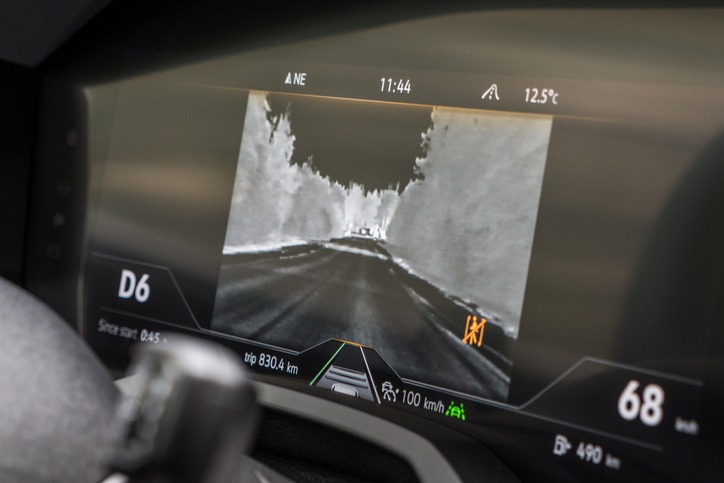Nowadays, driving at night can be a difficult and nerve-wracking experience. Whether you’re traveling on dark rural roads or busy motorways, the lack of visibility often means that even experienced drivers struggle to spot potential hazards sufficiently in time. But luckily there is now technology available to make our journeys safer – night vision systems for cars! In this blog post, we will look at two different types of night vision systems for cars – thermal imaging and infrared sensing – explaining how they work and which one might best suit your car. So if you want to make driving in lowlight conditions easier and help keep yourself safe on the roads, read on!
Overview of different night vision systems available for cars
There are two main types of night vision systems for cars – traditional and infrared-based. Traditional systems work by using a camera to capture the light from the headlamps, amplifying it to illuminate the road ahead. This works well in normal light conditions but struggles in badly lit areas. Infrared-based systems, on the other hand, use an array of sensors that detect infrared radiation; this allows them to pick up on objects which would otherwise be invisible due to darkness or fog.
Pros and cons of traditional night vision system versus infrared-based night vision system
The traditional night vision system is relatively inexpensive and straightforward to install, making it ideal for those who want a simple solution without breaking the bank. However, its lack of effectiveness in low-light conditions can be a problem. Infrared-based systems are more expensive but much better at picking up on potential hazards in darkness or fog, making them the best choice for drivers who need to be able to see their surroundings whatever the lighting conditions.
Differences in cost and installation between traditional and infrared-based systems
Traditional night vision systems are generally cheaper than infrared-based ones and tend to be easy to install because they rely on existing camera technology. On the other hand, infrared-based night vision systems require more complex hardware which is often expensive; as such, you will likely have to pay extra for a professional installation service.
How to choose the right night vision system for your car
When selecting a night vision system for your car, it’s important to consider your budget and the type of driving you to do. If you travel in well-lit areas or don’t have a lot of money to spend, then a traditional system may be sufficient. However, if you drive on rural roads or find yourself traveling in darkness regularly, then an infrared-based system is likely to be more suitable.
Benefits of having a night vision system in your car, such as improved safety
Having a night vision system installed in your car can make driving at night safer and more enjoyable. By being able to spot potential hazards earlier, drivers are better prepared to react and can reduce the chance of a collision. In addition, vision systems make it easier to spot road signs or pedestrians in the dark which could improve overall safety levels.
Tips on how to maintain and care for your night vision system
Night vision systems require regular maintenance to ensure that they are working optimally at all times. This involves checking on the lens, wiring, and sensors regularly as well as cleaning them after every use. You should also check if any software updates are available from the manufacturer and make sure these are installed so you have access to the latest features and performance improvements. Finally, make sure to store your night vision system out of direct sunlight when not in use as this can accelerate wear and tear on components.
Conclusion
Night vision systems are an essential tool for keeping drivers safe on the roads. Traditional systems are cheaper and simpler to install but might not be suitable for poorly lit conditions, whereas infrared-based systems can detect potential hazards even in darkness or fog. When selecting a system it is important to consider your budget and driving habits, while regular maintenance will ensure that your device remains in good condition. With the right night vision system installed, you can make driving at night much easier and help keep yourself safe on the roads.

